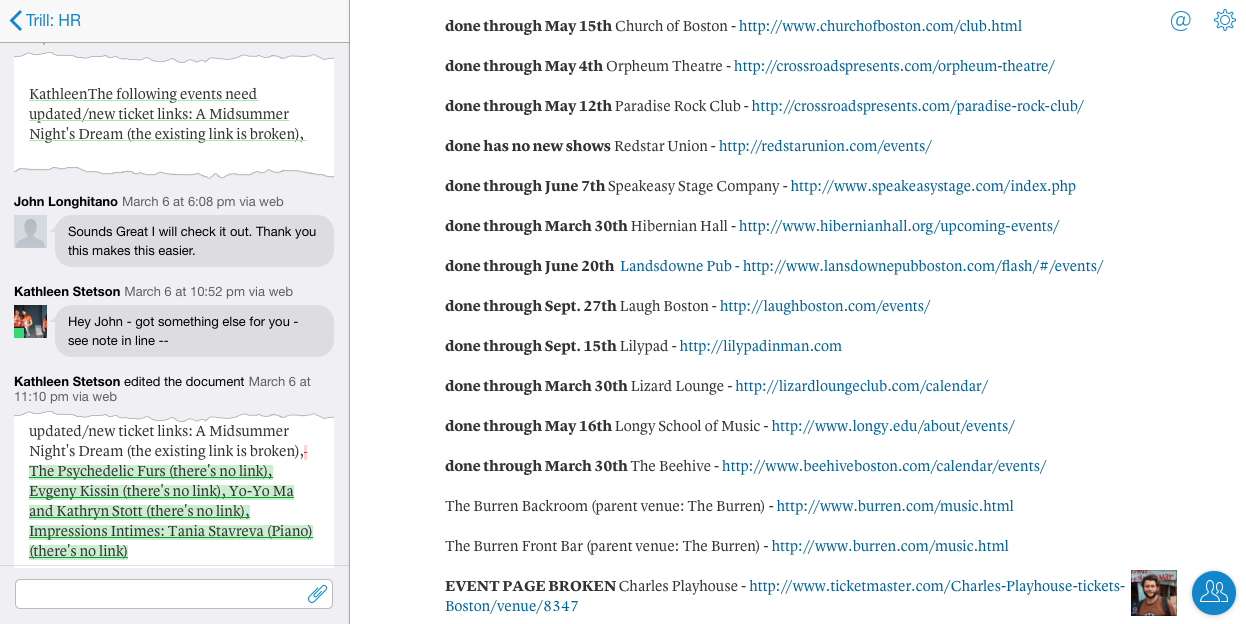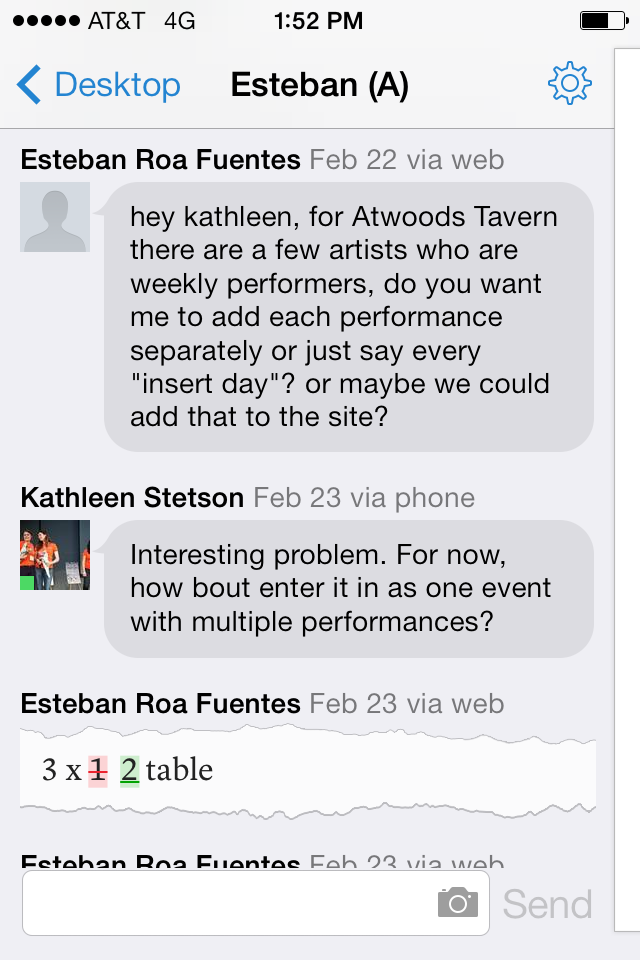How an Arts Tech Startup Uses Quip

A former opera singer and acoustical engineer, Kathleen Stetson is the Co-Founder and CEO of Trill, a new Boston-based startup that makes it much easier to find local live shows. In this guest post she explains how she and the Trill team got hooked on Quip.
As a startup founder with a distributed team, I'm always on the lookout for better productivity tools that can help us collaborate. When I first heard about Quip, I thought, isn't it just like Google Docs or Evernote? Nope, it's not. I am now addicted to Quip - it is open in my browser at all times, every day.
I love the idea of folders that can help me organize the innumerable lists and notes I make throughout the day. Previous to Quip, I used Evernote, but as I started playing around with Quip, I became drawn to it first because of its clean, simple, and very modern design. It has just enough white space, the fonts are contemporary, and the formatting is simple and just want you need. It's really beautiful and well-thought-out, which just makes it fun to work with.

And then, I realized the even bigger benefit of Quip over Evernote: collaboration and sharing is so much more seamless on Quip. My first shared Quip doc was a bullet point list of notes from a class lecture on the pros and cons of VC vs angel funding. Some of my friends in the class, who were already Quip users, asked me to share it with them, and then we started messaging back and forth and commenting, all within Quip in real-time. I didn't even realize how tired I had gotten of shared notes in Evernote resulting in “conflicting changes”, which I would then have to sift through, because Evernote doesn't allow changes in the same doc by multiple people at the same time. And while Google Docs is set up for real-time group editing, it does not store both the group's changes to the doc as well as the messages about the doc. Quip stores all of this in the side bar at the left of the doc.
These sharing features have been incredibly helpful as I have built my startup over the past few months. My startup is Trill, a discovery engine for live shows, which helps you find exciting, fun, awe-inspiring local live shows you wouldn't find otherwise. It takes all the disparate information about live shows from all across the internet and makes it super searchable. Currently in beta focusing on the Boston area, Trill has anything that happens on a stage - pop, rock, EDM, indie, classical, jazz, dance, and theater - big and small - at every venue in Boston, Cambridge, and Somerville. (Coming to other US cities soon!)

One of our hurdles has been populating our database. We are using a multi-pronged approach, one of which is manual data scraping. We hired a small team of undergrad interns to help us with this. The great thing is that they can work from anywhere on their own computers, but that could make coordination hard.
With Quip, it's been amazingly easy. Before I met with each intern, I set up a Quip doc for each, with a table for him to report his hours and suggested headings for notes about each day's work. As the interns work, they log notes about what they've finished, what bugs they've found in our admin site, and they message me with questions, right in the doc. Because Quip pushes messages to my phone, I get their questions immediately. I can then look at their doc on my phone to see details about their question, and then answer them back within a minute on Quip. It has made the data entry process so much more efficient than it would have been if we had been using email, or really anything else I can think of.

After a week of working with my interns like this, I brought my engineering team on Quip as well. We use it to share the results of usability tests and customer feedback, and to prioritize our tasks. Since switching the whole team over to Quip, we have been able to move faster, cut back on email, and work from anywhere.
Trill just launched in Boston, and is expanding to new cities soon. Take a look!
